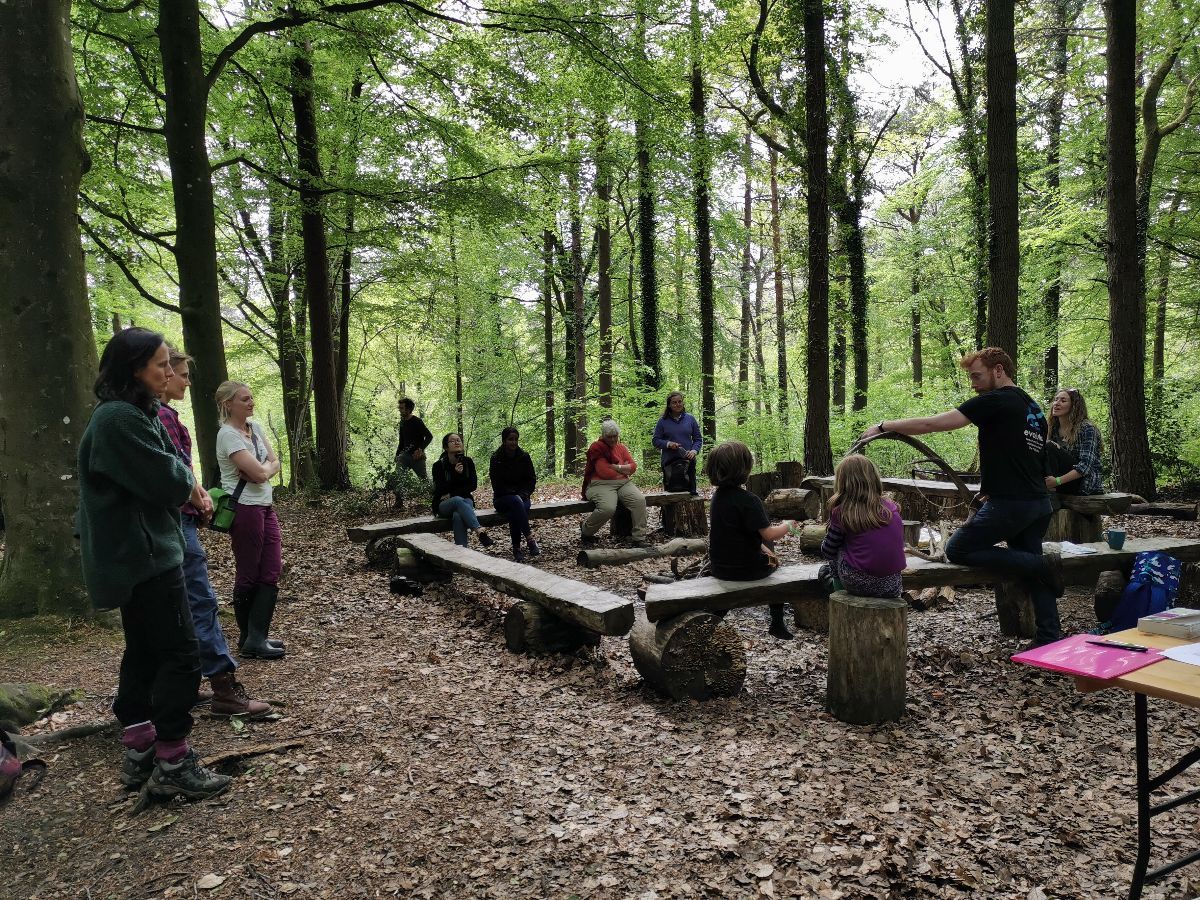The last weekend in May saw in our 3rd annual BioBlitz, a 24-hour wildlife survey to find as many different species of wildlife as possible!
Summary of wildlife records:
- 164 species so far (we could get a few more from photos)
- 53 moth species, including poplar hawk moth, little thorn, scorched wing, ochreous pug and yellow-barred longhorn moth – a day-flying moth with ridiculously long antennae!
- 4 butterfly species, including orange tip and common blue
- 65 plant species, including yellow pimpernel, ragged robin and black knapweed
- 25 bird species, including a new record – firecrest! Our smallest bird in the UK (tied with goldcrest), identified by song
- 3 reptile and amphibian species – common frog, palmate newt and slow worm
- 7 mammal species including barbastelle bat and bank vole
These records will be sent to Wiltshire and Swindon Biological Records Centre. Wildlife records help build a picture of how species are doing, including whether they are increasing or decreasing in range and abundance locally, nationally and even internationally. Records are used to inform land management including housing developments and habitat management work.
A total of 52 people came to the BioBlitz this year, making it one of Hazel Hill Wood’s biggest events ever. We had fantastic support from 20 volunteers in 2 main roles – welcoming other attendees and leading wildlife activities. Thank you so much, all of you!
We trialled paper “traffic light wristbands” to help communicate social distancing needs, which helped give people a sense of control and choice. We have some leftover – if you are running an event at Hazel Hill Wood this year and would like to use them, please let us know. Our coding system:
Red – maintain 2m distance at all times, no handling shared kit
Yellow – handle shared kit
Green – handle shared kit and get closer for short periods, e.g. to look at a bug or plant together.
Charley Miller, Conservation & Education Coordinator


One comment
Comments are closed.